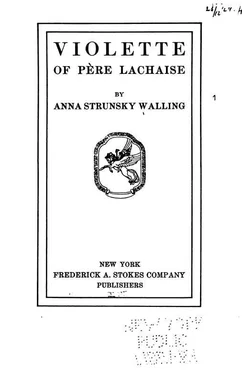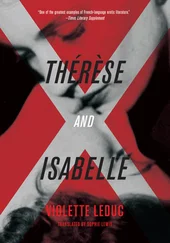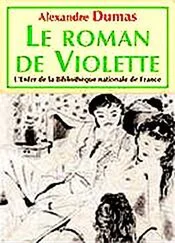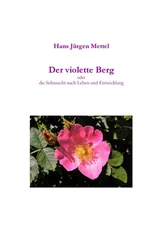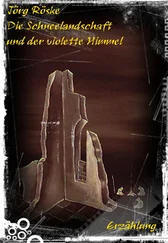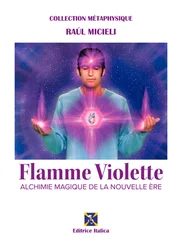Anna Strunsky - Violette of Père Lachaise
Здесь есть возможность читать онлайн «Anna Strunsky - Violette of Père Lachaise» весь текст электронной книги совершенно бесплатно (целиком полную версию без сокращений). В некоторых случаях можно слушать аудио, скачать через торрент в формате fb2 и присутствует краткое содержание. Город: New York, Год выпуска: 1916, Издательство: Frederick A. Stokes Company, Жанр: great_story, на английском языке. Описание произведения, (предисловие) а так же отзывы посетителей доступны на портале библиотеки ЛибКат.
- Название:Violette of Père Lachaise
- Автор:
- Издательство:Frederick A. Stokes Company
- Жанр:
- Год:1916
- Город:New York
- ISBN:нет данных
- Рейтинг книги:4 / 5. Голосов: 1
-
Избранное:Добавить в избранное
- Отзывы:
-
Ваша оценка:
- 80
- 1
- 2
- 3
- 4
- 5
Violette of Père Lachaise: краткое содержание, описание и аннотация
Предлагаем к чтению аннотацию, описание, краткое содержание или предисловие (зависит от того, что написал сам автор книги «Violette of Père Lachaise»). Если вы не нашли необходимую информацию о книге — напишите в комментариях, мы постараемся отыскать её.
Violette of Père Lachaise — читать онлайн бесплатно полную книгу (весь текст) целиком
Ниже представлен текст книги, разбитый по страницам. Система сохранения места последней прочитанной страницы, позволяет с удобством читать онлайн бесплатно книгу «Violette of Père Lachaise», без необходимости каждый раз заново искать на чём Вы остановились. Поставьте закладку, и сможете в любой момент перейти на страницу, на которой закончили чтение.
Интервал:
Закладка:
It was at this time that she realised more fully how very old her grandfather was, how slowly he moved, how his hands trembled, how httle he read when the shutters were drawn across the one window of the shop. He was very old—yet she felt he had bought something precious with his age, that he was different from the old men she saw sitting on the benches at the entrance to Pere Lachaise, or hobbling aimlessly along the streets. He was dijfferent from everybody—that was why he was able to care for her as he did, to mother her, and talk to her at length when he sat with her at the deal table in the room behind the shop. If he were not diflferent from others he would not have taken her to meetings where people spoke from their seats or from a little platform in front. He never addressed the gatherings, and they were not noticed as they came and went, yet she felt he belonged there perhaps more than those who talked stormily and were interrupted by applause in which she timidly joined.
She had an extraordinary feeling about these gatherings, as if they who were present at them were people set apart from the rest of the world, crusaders, inspired lovers of mankind, fired by a wonderful mission. Her heart beat violently on entering the hall, her cheeks flamed. She saw there people of different nationalities, men who spoke different tongues, but whose eyes shone as they listened to the speakers, and whose faces bore the same expression of zeal and enthusiasm. There were girls and women who came from far away, but who had also something in their faces that made them strangely alike to every one in that company. She did not call it civic sorrow, idealism; she did not know it for love and for revolt—she only felt that something united them, that something big and portentous made them one.
She bought the little paper-covered books they sold at the entrances to the halls, read them, and found their matter ponderous and complicated. Yet their gist was something which concerned her far beyond anything else—they dealt with the matter of making over the foundations of the world 1.
Pere Lachaise saw her seated under a tree with these thin little books open on her lap, and her brows meeting in puzzled concentra-tion as she read through long afternoons until light failed. Before her were unrolled movements, organisations, concepts like The People and Humanity, forces modern and all-embracing. She did not press them upon her grandfather, as she did the books and poems she drew out of public libraries. She thought that his heart was too tired, that he had lived too long in the old world to wander forth on a dusty and difficult pilgrimage towards the new that was not yet bom. Yet she never forgot that it was through him that she came upon it all— ' through him, so wonderfully diflFerent from every one else.
IV. Impressions
SHE began to read when she was very little, and the first story told of a lover who returns to his beloved just as she is being married to another. It was in spring. The river was swollen, little rills ran down the slopes of the hills, bubbled and frothed as with excess of life, the grass was greener than he had ever seen it, the cupolas of the churches of that country shone out green and gold in the bright clear sunlight. Ever afterwards, in all the springs that her life contained, there was something sad to her in the very fulness of that season, something that she distrusted in the clearness of its skies, and yet loved the more, abandoned herself to their beauty the more wholly for distrusting. Happiness everywhere, the birds sang, the gentle winds breathed, happiness everywhere and joy beyond measure —but in the heart of man I For something greater than happiness spring existed—for a destiny greater than quiet surrender to love and peace, for something great, heartrending, inspiring—for something sweet and terrible I.
She read another book again and again, the story of a white boy among Indians, and what she remembered afterwards of it was a blurred sense of romance, of mysterious depths among trees so thick the sunlight never filtered through them, of torrential rivers, of wildness and vastness. It was remote, fantastic, with beauties and wonders impossible to extricate or to know one from the other, a tangled web of fancies like the forest itself. Thus was Nature, exuberant, tropical, elemental, brought into her consciousness—thus was her mark laid for life upon the city child.
There remained to her a definite impression of one other book—the story of the sufferings of a little child her own age. She was mistaken, this mother, to have let her baby go from her arms; she should have known that evil would befall her despite the love which from a distance she would send on, despite her prayers, her tears, the blood she would pour out for her—evil must befall a child separated from her mother! Thus reasoned Violette, and she wept and exulted in the fact that a Fantine existed in the world, she like to whom all mothers, fortunate or unfortunate, were made.
So from her earliest days she had read, and also from her earliest days she had known the theatre. She would never forget the impression made upon her by the first play she ever saw. Tier upon tier of people, music, light, and Violette clinging to her grandfather's hand, impatient at the interval between the playing of the orchestra and the rising of the curtain. She was inspired by the heroine. The love the heroine felt for her husband she could only compare to the majesty and the purity of the sky, to something greater, more passionate, more wonderful than anything she had ever conceived. And this love, this purity, this passion was distrusted, denied, murdered before her eyes by the unfortunate, half-sane man! She pitied him more than the strangled Desde-mona. She saw the pink and white silk dress of the wife, retiring in her sadness, thrown carelessly across a chair, and it haunted her, this dress that outlived the wearer, this dress that looked as though it must be put on again and worn in happiness and joy, as though it clamoured that the irreparable deed be undone.
After that they went often to the theatre, and Violette either read the plays before or after seeing them, and soon w:as able to speak the principal parts of the characters, to vary them from the way she had seen them given, and sometimes to construct in her mind other plays she had neither read nor seen.
She sat before the curtained stage, waited for the tinkling of the little silver bell, wondered what the scene would be, what spectacle of life would face the audience, her heart bounding with something different from pleasure or joy, but elated as with both of these. To drink in the voice and personality of a supreme artist, and to watch her appear, disappear, and appear again before the footlights, this was herself to be an artist, —in her abandon there was something in itself creative and dramatic. For days after a visit to the theatre she walked about as in a dream, every detail vivid before her mind, living over again everything that had there moved and thrilled her.
V. Her Generation
SHE knew children. She watched them on the streets and on the green banks of Pere Lachaise. They seemed to her to be apart from the rest of the world, something fairer, fresher, only slightly related to the adults about them; they seemed to be a world within a world. Each child was different from every other she perceived, as grown people were different, yet, as with grown people, they had some things in common which made them all alike. So she felt herself a child, felt that her thoughts, her questions were a child's thoughts and questions, her feelings the feelings of a child. What was it to be a child? Was it simply not to be yet grown, or something different from this, and more? If it was not to understand things, if it was to go about questioning, wondering, then surely the same was true of her elders—what was a child?
Читать дальшеИнтервал:
Закладка:
Похожие книги на «Violette of Père Lachaise»
Представляем Вашему вниманию похожие книги на «Violette of Père Lachaise» списком для выбора. Мы отобрали схожую по названию и смыслу литературу в надежде предоставить читателям больше вариантов отыскать новые, интересные, ещё непрочитанные произведения.
Обсуждение, отзывы о книге «Violette of Père Lachaise» и просто собственные мнения читателей. Оставьте ваши комментарии, напишите, что Вы думаете о произведении, его смысле или главных героях. Укажите что конкретно понравилось, а что нет, и почему Вы так считаете.
